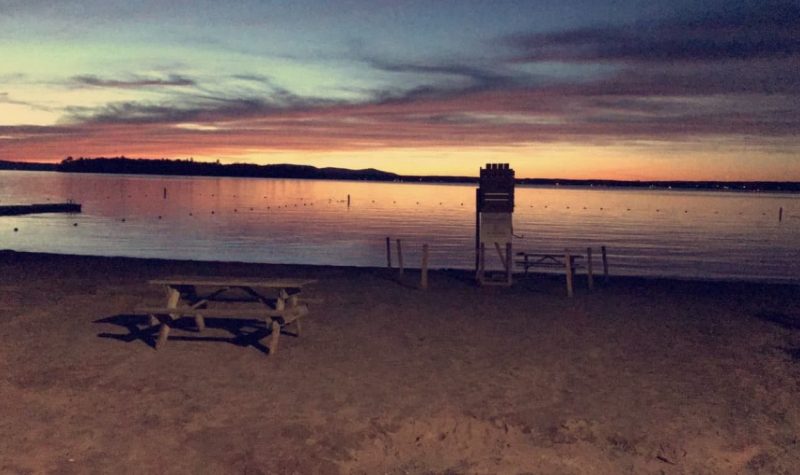In collaboration with Organisme De Bassin Versant De La Yamaska (OBV Yamaska) and Renaissance Lac-Brome (RLB), the Town of Brome Lake has unveiled its new action plan to protect and and preserve Brome Lake.
The “Action Plan for a Healthy Lake” spans from 2022-2026 and is compromised of 35 points grouped under seven orientations to address the five identified threats to the lake, including phosphorus and cyanobacteria.
Louise Morin, municipal councillor for the town and coordinator for the environmental committee, said that an action plan was put together in 2008, but an update was needed.
“We asked the OBV Yamaska (…) to produce an analysis of the situation. That was two years ago and they tabled their study at the end of last year. It was 200-pages so it was very comprehensive, and a bright study made by biologists and environmental specialist,” said Morin.
Morin continued to explain that they took the time to “digest” the study to produce a “helpful” document and communication tool for town council and citizens of Brome Lake.
Assessments of the lake determined that it is currently facing a difficult situation.
“The situation is difficult, but we can contain the problems that the lake has presently if everybody does what they have to do,” mentioned Morin.
The action plan identifies five major threats currently facing Brome Lake.
“I think the one that is the most important is the phosphorus and cyanobacteria that still comes into the lake. The second one is fecal coliforms that is still menace, but in less of a manner. We’ve taken a lot of measures in the last years,” noted Morin. “There are now some invasive species that are menacing the indigenous species, both flora and fauna. Some types of recreational use of the lake are also problematic.”
To contain these threats, 35 actions were identified with the hopes of achieving seven goals: Minimizing wastewater discharges into the lake and watercourse, protecting native species and combat invasive species, raise awareness, inform and mobilize lake users, control the lake level in an optimal manner, collect the most up-to-date data on the health of the lake, and to work in collaboration with partners concerned by the health of the lake.
“I think one that is most important is to minimize the contamination of the lake by runoff water. The town has to take on some measures. We have to be careful how we do the roads and how we manage our own infrastructure,” explained Morin. “(…) Like right now we are taking mitigation measures regarding of the restoration of Mill Pond and the building of the dam.”
Morin emphasized that citizens that live along the shores of Brome Lake, and those that are a part of its watershed, play an important role in minimizing the contamination.
“The landscaping around the lake it has to be, in a lot of cases, done in a more respectful manner to the environment. Right now we have a lot of shorelines along the lake that might be aesthetic and beautiful, but you have lawn and practically no shrubs to stop the water from going into the lake,” she said. “We have to change our habits and practices.”
The “Action Plan for a Healthy Lake” can be viewed online at lacbrome.ca/en
Those that have questions on this initiative are invited to send them to the Town of Brome Lake by e-mail at communications@lacbrome.ca
Listen to the full interview below:


